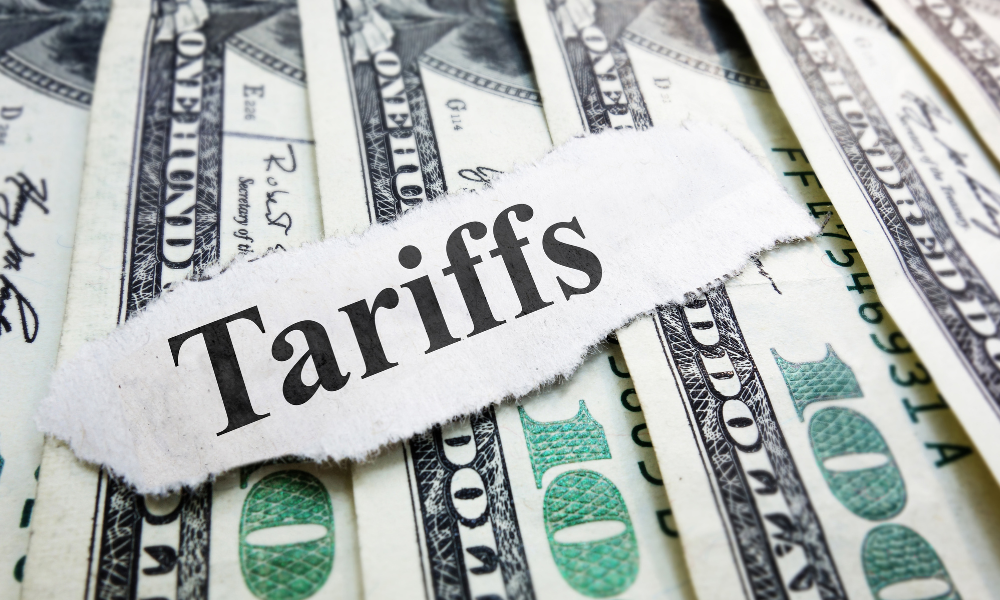'The timing is horrific. Why would we add to the cost of housing when we desperately need more housing?'

California homebuilders say they have little choice but to continue purchasing Canadian lumber, even if a proposed 25% tariff is imposed, as they scramble to rebuild thousands of homes destroyed by wildfires.
Dan Dunmoyer, president of the California Building Industry Association, said the state lacks alternatives to Canadian lumber, which has long been a primary material for construction. With about 80% of California’s land under federal or state control, logging is heavily restricted, and the state’s limited milling capacity makes it difficult to switch to domestic production.
“We are very dependent on Canadian lumber,” Dunmoyer said. “We like Canadian lumber. It’s super high-quality, properly harvested for the environment. It’s really quality material.”
“It just means higher prices”
If imposed, the new tariffs would raise total duties on softwood lumber imports from Canada to nearly 40%, factoring in the existing 14.4% levy. Prime Minister Justin Trudeau and Trump announced on Monday that the proposed tariffs would be delayed for 30 days, giving both governments time for further discussions.
The US has long argued that Canada unfairly subsidizes its lumber industry, but Canadian officials and industry leaders call the tariffs unnecessary. The United States currently produces only about 70% of the lumber needed for homebuilding, with Canadian imports filling the gap.
On January 30, Trump downplayed the need for Canadian wood, claiming the US has “all the trees you need.”
However, California builders dispute that notion, pointing to the state's restrictive logging laws and limited milling infrastructure.
Dunmoyer warned that implementing steep tariffs without addressing domestic supply issues would leave builders with no choice but to pass higher costs onto homebuyers.
“I understand from a president or a prime minister’s perspective, it’s all about jobs. It’s all about making sure your people have an income and a lifestyle, the quality of life, that’s enjoyable,” he told Bloomberg. “But to try to do this over a weekend and say, ‘Hey, we just want to put these big tariffs on any country without creating the economy within your own country,’ (it) just means higher prices, full stop, full period.”
Wildfire recovery efforts at stake
For homebuilders, the timing of the tariff threat is particularly alarming. California is still recovering from devastating wildfires that destroyed or damaged an estimated 19,000 homes and structures around Los Angeles in January.
“The demand for housing before the fires was off the charts,” Dunmoyer said. “We have projects where we have 35 homes available and 500 people in a waiting list, but that was before the fires.”
With thousands of displaced families urgently needing new homes, Dunmoyer said the proposed tariffs would drive up reconstruction costs and create additional challenges in an already strained housing market.
Read next: Trade war speculation clouds outlook for Canadian homebuyers
“It increases the demand immediately – it’s not a ramp-up,” he said. “You’ve got 15,000 displaced families who immediately need a home. And we don’t produce that many homes on a monthly basis in California to meet that demand alone.”
Even if builders considered switching to domestic lumber, Dunmoyer said it wouldn’t necessarily be a cheaper alternative, given the state’s supply constraints.
Canada’s retaliatory tariffs
In response to the renewed trade dispute, British Columbia’s government has formed a new council consisting of industry leaders, labour groups, trade experts, and government officials to fight the proposed tariffs. BC Forests Minister Ravi Parmar said the province is pushing for solutions to eliminate the existing 14.4% softwood lumber duties and prevent further increases.
“The US has imposed unjustified softwood lumber duties on Canada for years, and we anticipate that they will likely double before the end of this year,” Parmar said. “Bringing this team together, I am ready to throw the full weight of BC in the ring to fight these duties.”
Parmar also emphasized that US states like North Carolina, where Hurricane Helene caused significant destruction last fall, would face similar rebuilding challenges if the tariffs were implemented.
“When President Trump talks about not needing our trees, he’s absolutely false,” Parmar said. “North Carolina and California are both going to be going through major rebuilds, and they will rely on Canadian lumber. And it’s going to cost them more because of these duties and if a tariff were to be in place.”
Read next: 'We can't get distracted by the negativity': Broker's rallying cry amid political chaos
For now, homebuilders remain on edge as the 30-day tariff delay plays out. If the additional duties move forward, housing costs in California, already among the highest in the country, are expected to rise further.
Dunmoyer urged policymakers to consider the real-world impact of lumber tariffs on families struggling to secure housing.
“The timing is horrific,” he said. “It’s horrible. Why would we add to the cost of housing when we desperately need more housing?”
Make sure to get all the latest news to your inbox on Canada’s mortgage and housing markets by signing up for our free daily newsletter here.



